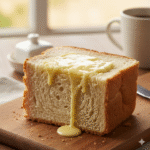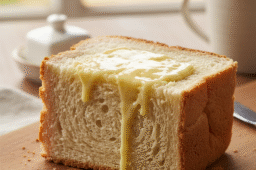
How to Start a Profitable Juice Bar in Nigeria
- July 23, 2025
- by
- Khyra
As the country shifts toward wellness-focused lifestyles, juice bars have emerged as a hot trend, particularly among urban dwellers and health-conscious youth. Nigeria commands about 37% of Africa’s juice sales, with over half of Nigerians consuming fruit juice regularly. Post-COVID, more Nigerians now seek natural options, leading one entrepreneur to observe, “There’s been an increased awareness around healthy living, post-Covid, as well as the convenience factor of smoothies.” From Lagos to Abuja, the demand for fresh, natural drinks has created new business opportunities.
Is this business really profitable?
Absolutely. With a projected value of $5.7 billion by 2027, Nigeria’s juice market continues to grow. The 2002 ban on imported fruit juice paved the way for local production, boosting margins for Nigerian entrepreneurs. Globally, the juice bar industry is a $9 billion market with consistent growth. Nigerian businesses tapping into local fruits and wellness trends are not only meeting demand but are also creating brands with staying power. Ada Osakwe, founder of Nuli Juice, built a national brand by focusing on fresh, local produce, stating, “We energize healthier lifestyles in Africa with better nutrition.”
Where do you begin when launching a juice bar?
Start with a solid business plan. Define your model: a dine-in bar, delivery-only service, or a mobile juice truck. Many entrepreneurs begin from home, using social media to collect orders. Clearly outline your niche (e.g., detox blends, smoothies, exotic juices), pricing, competitors, and your financial roadmap. Having a strong plan not only guides you but can also attract investors and partners.
How do you create a winning menu?
Begin with experimentation. Nigeria is rich in fruits like mango, pineapple, baobab, and hibiscus. Try various combinations and host tasting sessions with friends or family to gather feedback. Document your best recipes for consistency. Innovation is key: think ginger-infused watermelon or green smoothies using local ugu leaves. Highlighting Nigerian ingredients not only adds uniqueness but also fosters local pride. Ada Osakwe emphasized that using indigenous produce added value and set her brand apart.
Where should you locate your juice bar and what equipment is essential?
High-footfall areas such as business districts, fitness centers, universities, and malls in Lagos, Abuja, or Port Harcourt are ideal. Invest in quality equipment like cold-press juicers, refrigerators, and display chillers. These enhance juice quality and sales. A reliable power source is crucial, given Nigeria’s erratic supply. A Lagos-based entrepreneur noted, “We suffer outages, which does hamper business,” highlighting the need for generators or solar backups.
What are the legal requirements?
Start by registering your business with the Corporate Affairs Commission (CAC). If you plan to bottle juice or make health claims, secure NAFDAC approval. This involves inspections and safety checks but builds consumer trust and opens doors to supermarkets and corporate clients. Don’t overlook local health permits or food vendor licenses.
How do you attract and retain customers?
Use social media aggressively. Instagram and Facebook are great platforms to showcase colorful drinks, post health tips, and engage with followers. WhatsApp broadcasts helped one juice brand bring in major orders during the pandemic. Partnering with gyms, spas, or hosting community events can boost visibility. Loyalty cards and top-notch service can convert first-timers into regulars. Boomsky Smoothies, for example, started with events and now sells in over 50 outlets in Lagos.
Is running a juice bar as easy as it seems?
There are challenges. Fresh produce spoils quickly, and fruit prices fluctuate. Buy in-season, freeze excess, and diversify your menu to manage costs. Train staff on hygiene and consistency. Avoid overcomplicating recipes with too many exotic ingredients. “Unless you live in an area where people will pay $25 per bottle, don’t throw every super-food into every blend,” warns one expert. Sustainable success comes from balancing quality with affordability.
Is drinking juice as healthy as people think?
Not always. A common misconception is that fruit juice equals whole fruit. Juicing removes fiber, leading to rapid sugar absorption. Scientific studies confirm that while juices retain vitamins, they often cause sugar spikes if consumed excessively. Offer vegetable-based blends and smoothies with retained pulp to improve nutritional value. Educating customers builds trust and sets you apart.
What are the key hurdles and how do you navigate them?
Perishability is a major concern. Build strong supplier relationships and understand seasonal patterns. Train your team to minimize waste and rotate stock efficiently. Another challenge is maintaining product consistency across batches. Standardized recipes and staff training help. Competition will arise, but stay ahead with innovation and excellent service. Monitor global trends and local preferences to stay relevant.
Why does this business matter culturally and economically?
Juice bars empower local farmers by creating consistent demand for Nigerian fruits. They also promote health in communities, offering a convenient way to consume essential nutrients. Environmentally, they reduce reliance on imported drinks and encourage sustainable packaging. Ada Osakwe’s Nuli employs over 50 people, proving that juice bars can be both profitable and socially impactful.
Can a Nigerian juice brand go global?
Without a doubt. Brands like So Fresh have expanded across cities and aspire for international reach. Nigeria has a rich pool of unique flavors that could become global trends. Imagine a moringa-lime detox juice or a ginger-tamarind blend on international shelves. With dedication and the right strategy, your juice bar could become a cultural ambassador.
So, are you ready to start blending success?
Now is the time. The Nigerian market is ripe with opportunity, and wellness is no longer a luxury but a movement. Start small, learn fast, and scale wisely. Whether you’re an investor or an entrepreneur, the juice bar space is worth exploring. Begin by drafting your plan, testing recipes, or scouting locations. Every big brand started with a small, bold step. Yours can too. Cheers to your fresh start!







